July 2021: Phase 11 - telephone interview
Due to the current COVID-19 pandemic a telephonic phase has been designed to keep in touch with families and ask about maternal and child mental health at age 5-6 as well as current impact of the pandemic on each family. We will be seeing families face to face in our new labs at the NIMHANS Centre for Well Being for developmental assessments, assessments of parenting and planned collection of biological samples as soon as lockdown and associated social restrictions allow.
August 2020: COVID- 19 telephone interview.
A telephone interview to get in touch with families in the study during the pandemic is now under way! We are asking mothers about how they, their families and the study children, now ranging in age from 3 -5 years old, have been affected by COVID-19 pandemic and how they have been coping.
April 2020: Third floor construction
One of the impacts of the BCHAD study is raising awareness on the importance of conducting studies on maternal and child mental health in India where research is still lacking. As consequence, NIMHANS has been extremely supportive and a third floor of the Centre of Well Being where the child assessments take place has been under construction in order to guarantee an ideal environment for conducting research. This will hopefully open new venues for future projects that can benefit from the availability of that space.
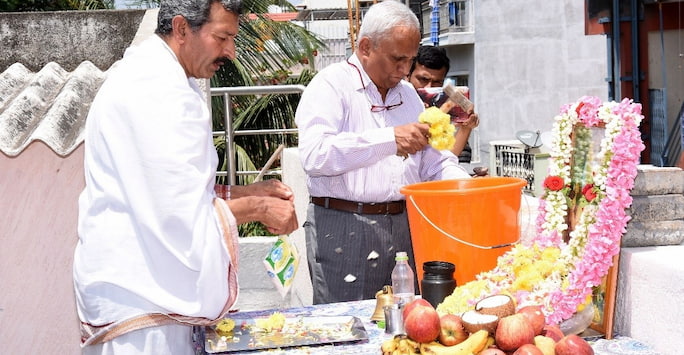
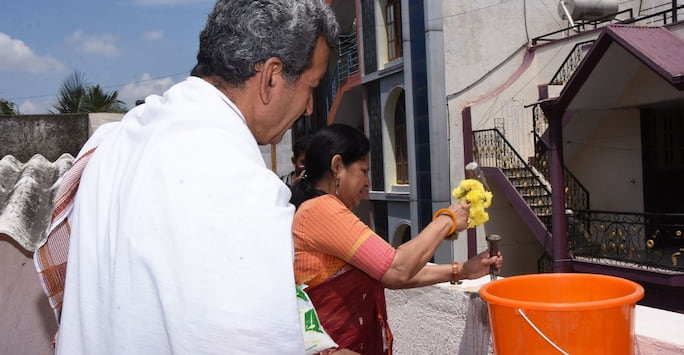
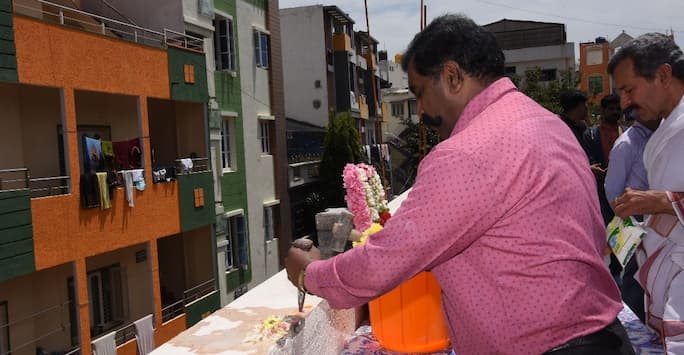
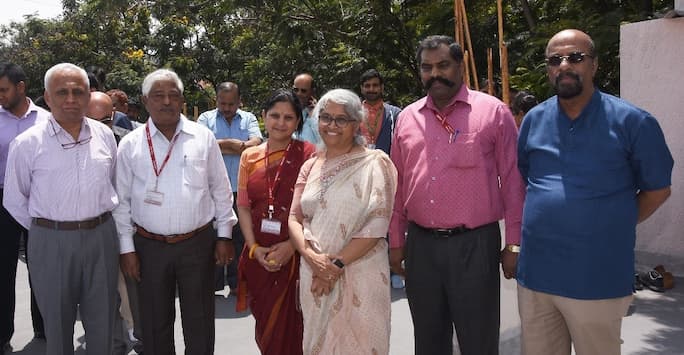
Prof. B.N. Gangadhar, Director, Prof. K.Sekar- Registrar, Prof. Prabha Chandra - Professor of Psychiatry, Prof. Badrinarayan- Medical Superintendent, Prof. Pratima Murthy- HOD Psychiatry, Mr. Mohan Krishna- Head of Nursing
April 2019: New funding granted!
The Medical Research Council (UK) Global Challenges Research Fund has awarded us a new grant to follow up families when their children are 5 and 7 years of age (BCHADS II). The aim is to compare data collected in India with that gathered by our sister cohort in the UK, The Wirral Child Health and Development Study, to examine shared and distinctive risk and protective factors for child mental health and cognitive development in the UK and India.
During the next phases of the study in India we are going to ask families and teachers to help us collect information on our study children. We are looking forward to seeing how they are growing and to involving them more actively in various computer-based activities and games with different toys to assess their development, as well as asking mothers about their own and their child’s mental health and broader home environment.
2018 - Media Reports
Women at perinatal stage have suicidal tendencies
Two mothers and as many infants are reported dead among the 909 mothers and children registered under the Banashankari Primary Health Centre, who were part of a first-of-its-kind Nimhans health study.
Read more here:
Nimhans teams with UK in cohort
In what could be a major breakthrough in mental health research, the Indian Council of Medical Research (ICMR) has finally approved the largest cohort collaborative project between British and Indian scientists.
Read more here:
October 2018: BCHADS team symposium at the International Marce biennial conference at NIMHANS, Bangalore
Our team led a symposium on ‘Cross cultural issues in mother infant caregiving - findings from the Indo UK collaborative Bangalore child health development study’ presenting some preliminary results from the Bangalore Child Health and Development Study. Three papers were presented followed by some lively discussion with the international audience of clinicians and academics.
Maternal anxiety mediates the link between partner psychological abuse and infant anger prone temperament in the Bangalore Child Health and Development Study.
Chandra, P., Bozicevic, L., Desai, G., Hill, J., Sharp, H.
Similarities and differences in early infant care in UK and India: A psychometric comparison using the Parent-Infant Caregiving touch Scale.
Pickles, A., Hodsoll, J., Chandra, P., Desai, G., Hill, J., Sharp, H.
Conceptualising cross cultural differences in early caregiving: comparative levels of instruction and mind-mindedness in UK and Indian samples.
Bozicevic L., Omirou A., Holla C., Sharp H., Chandra P., Hill, J.
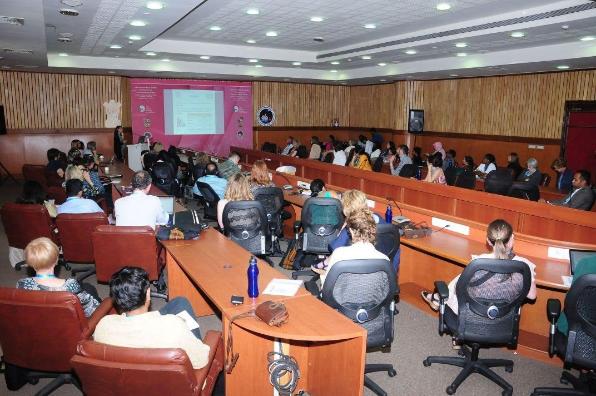
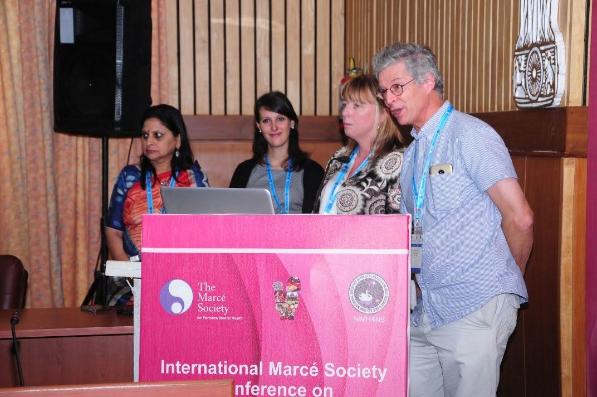
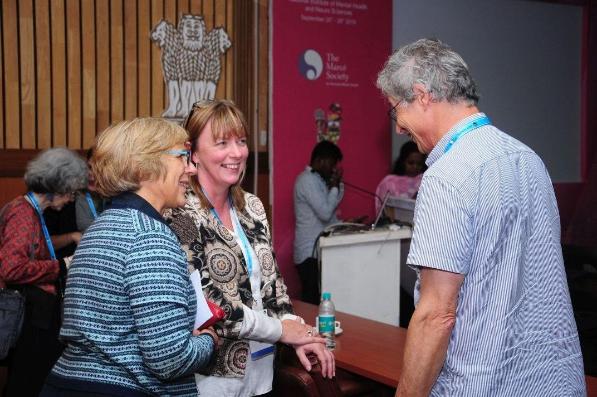
October 2018: BCHADS team poster presentation at Marce conference
A number of posters were displayed during the conference.
Predicting risk of poor pregnancy outcomes using latent statuses of Depression & Anxiety
Bajaj, A., Thennarasu, K., Desai, G., Chandra, P.
Correlates of Pregnancy Specific Anxiety in an antenatal cohort in Urban India.
Chandrakanth, C., Supraja, T.A., Bojappa, M., Desai, G., Jangam, K., Satyanarayana, V., Kandasamy, T., Chandra, P.
Improving the cross-cultural validity of the Edinburgh Postnatal Depression Scale: a pilot study of an anchoring vignette approach.
Bluett-Duncan, M., Chandra, P., Pickles, A., Hill, J., Kishore, M.T., Satyanarayana, V.A., Desai, G., Bozecevic, L., Sharp, H.
Predictors of exclusive breastfeeding practice among women from an urban community of India.
Supraja, T.A., John, S,M., Jangam, K.V., Chandra, P.
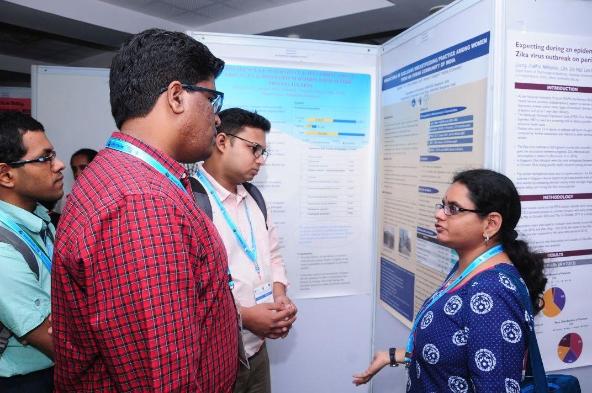
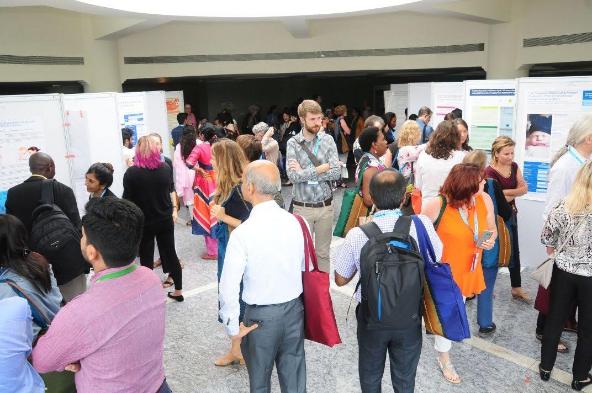
Young Professional Mentorship Breakfast
Mentors, who are leaders in the field of Perinatal Mental Health (including senior members of the BCHADS team), were matched with selected Young Professionals attending the conference. Selected Young Professionals had the opportunity to ask questions and discuss their areas of interest in a one-to-one mentoring session and in groups over breakfast.
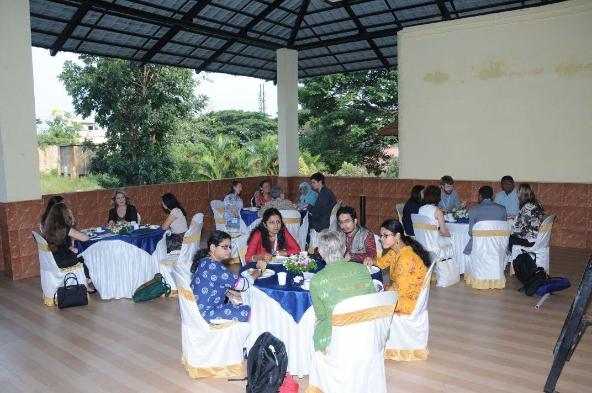
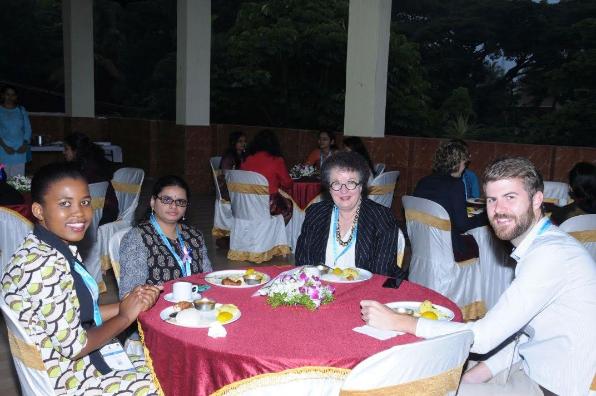
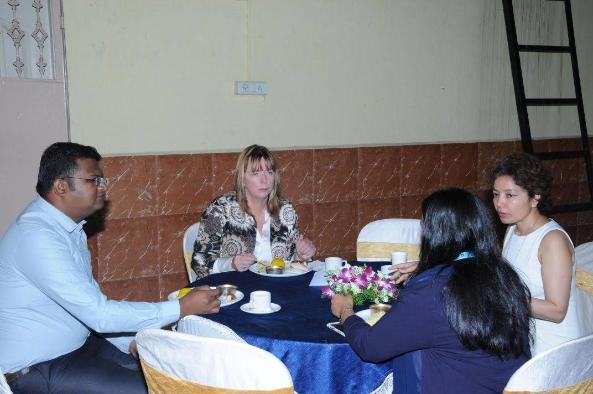
September 2018: Presentation of results from the study at the Marce Society conference in Bangalore
Andrew Pickles pre-conference workshop
Prof. Andrew Pickles ran a pre-conference symposium on longitudinal analyses of cohort data at Biostatistics Department as part of the capacity building events organised by the BCHADS team.
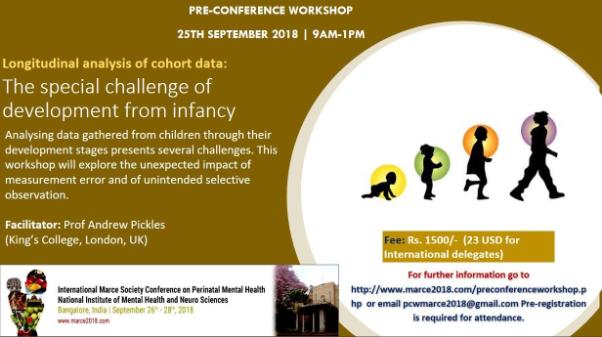
Our team then ran a symposium presenting some preliminary results from the Bangalore study and a number of posters were displayed:
Talks
Bozicevic L., Omirou A., Holla C., Sharp H., Chandra P., Hill J. Conceptualising cross cultural differences in early caregiving: comparative levels of instruction and mind-mindedness in UK and Indian samples.
Chandra, P., Bozicevic, L., Desai, G., Hill, J., Sharp, H. Maternal anxiety mediates the link between partner psychological abuse and infant anger prone temperament in the Bangalore Child Health and Development Study.
Pickles, A., Hodsoll, J., Chandra, P., Desai, G., Hill, J., Sharp, H. Similarities and differences in early infant care in UK and India: A psychometric comparison using the Parent-Infant Caregiving touch Scale.
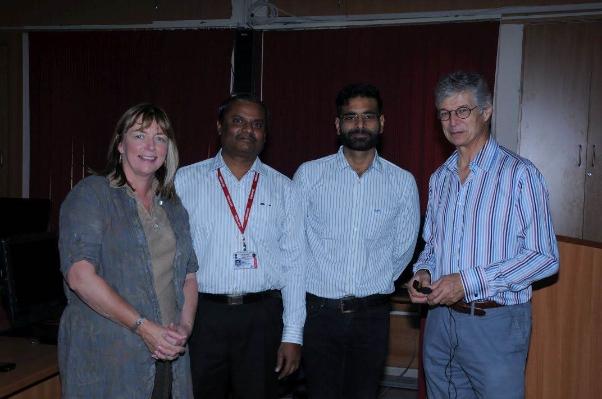
Posters
Bajaj, A., Thennarasu, K., Desai, G., Chandra, P. Predicting risk of poor pregnancy outcomes using latent statuses of Depression & Anxiety.
Chandrakanth, C., Supraja, T.A., Bojappa, M., Desai, G., Jangam, K., Satyanarayana, V., Kandasamy, T., Chandra, P. Correlates of Pregnancy Specific Anxiety in an antenatal cohort in Urban India.
Bluett-Duncan, M., Chandra, P., Pickles, A., Hill, J., Kishore, M.T., Satyanarayana, V.A., Desai, G., Bozecevic, L., Sharp, H. Improving the cross-cultural validity of the Edinburgh Postnatal Depression Scale: a pilot study of an anchoring vignette approach.
Supraja, T.A., John, S,M., Jangam, K.V., Chandra, P. Predictors of exclusive breastfeeding practice among women from an urban community of India
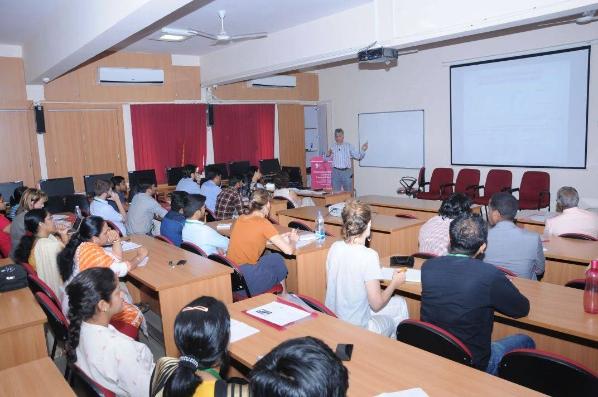
In the following videos Dr Prabha Chandra (co-host of the Marcè conference) and Prof. Helen Sharp talk about the BCHAD study.
https://www.youtube.com/watch?v=Lh18UvuPaak
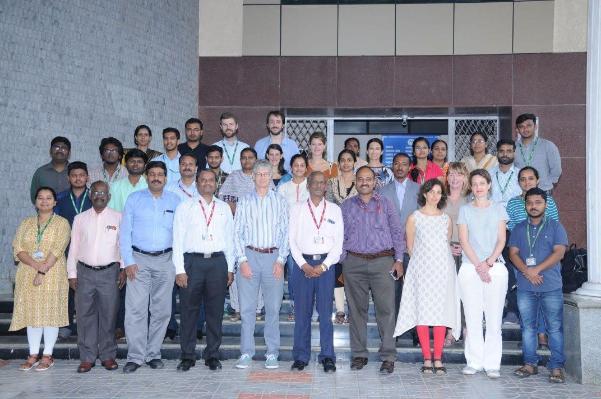
July 2018: Liverpool-NIMHANS 6th symposium
The University of Liverpool and NIMHANS organised the 6th symposium held in Bangalore to show case the highlights of the collaboration between the two Institutions (which includes a dual PhD programme) in the field of Perinatal Mental Health and Infection and Global Health.
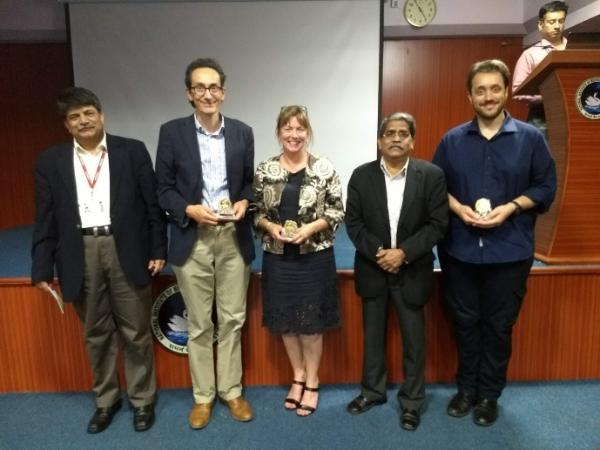
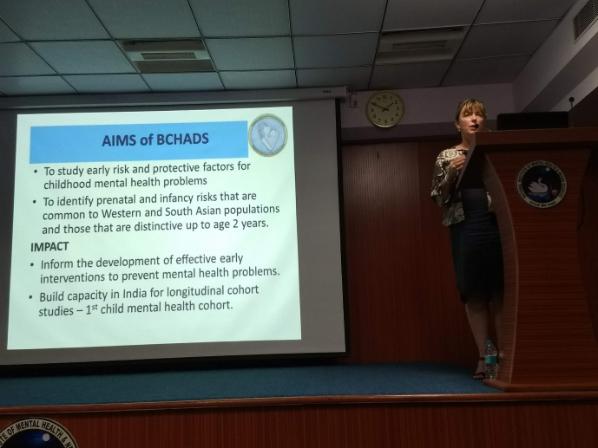
May 2018: Presentation of preliminary results to WAIMH conference in Rome
Information to follow
March 2018: Online training NICHD coding
Some of the UK members of the BCHADS team (Prof. Helen Sharp and Laura Bozicevic) trained young and senior professionals (e.g. psychiatrists, psychologists, PhD students) in the application of the NICHD protocol which is widely used to video-record caregiver-child interactions and code their quality.
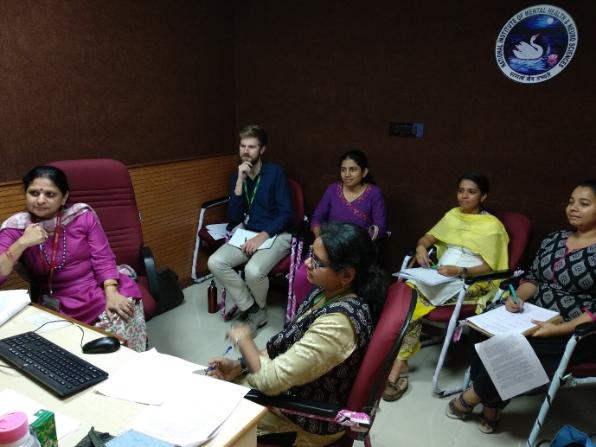
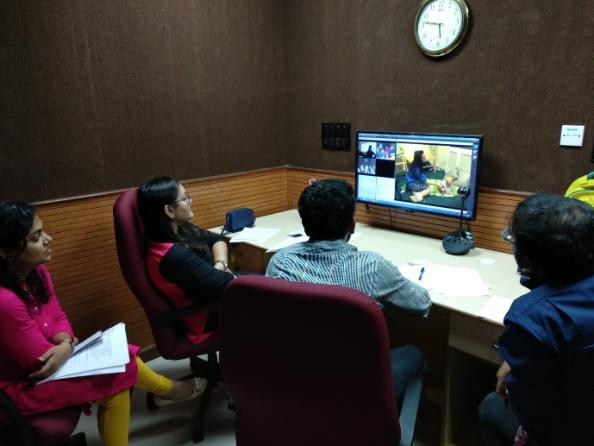
January 2018: Seminar during visit in Bangalore on Measurement of Maternal Infant Interaction and meeting with anganwadi
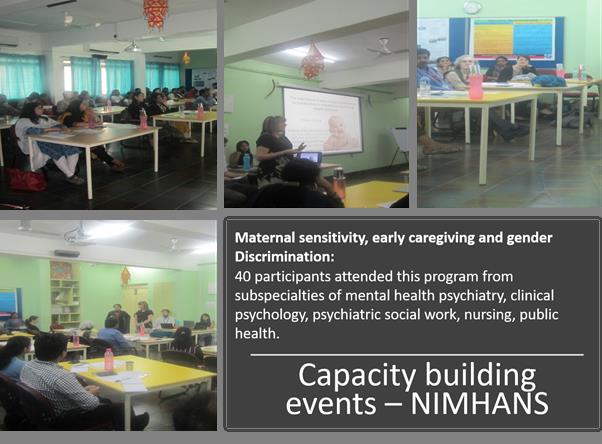
Capacity building seminar on maternal sensitivity, early caregiving and gender discrimination
During our visit to Bangalore,a seminar open to different professionals was organised by members of the BCHADS team to illustrate issues related to the measurement of caregiving behaviours (which have been assessed in the Bangalore Child Health and Development Study). Other relevant dimensions for the Indian context when studying maternal and child mental health, such as gender discrimination, were also included in the talks and discussed with the audience.
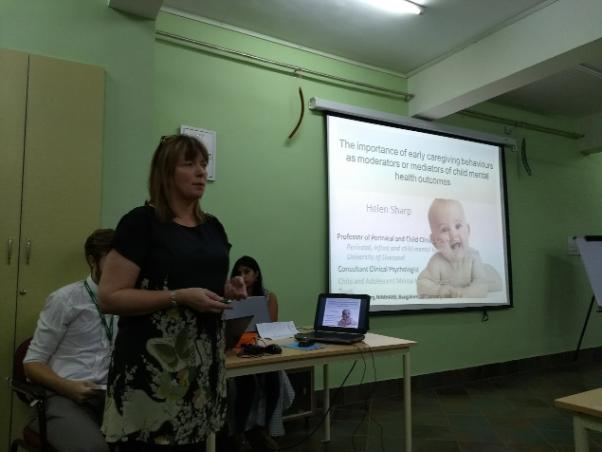
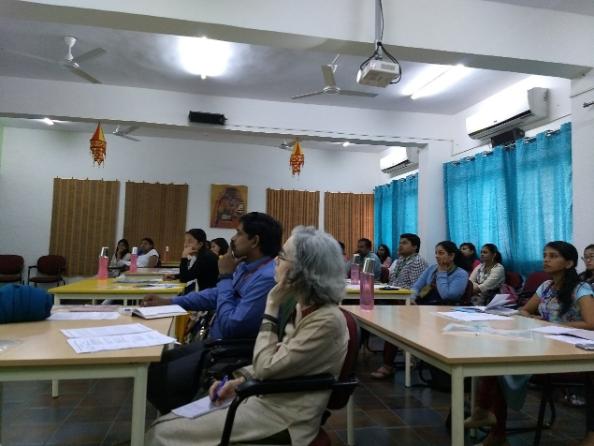
Meeting with Anganwadi workers
A meeting with the anganwadi workers (who are trusted people in the community and in contact with the families involved in our research) was organised to present progress done in the Bangalore Child Health and Development Study and to thank them personally for the support they have provided in helping families engage in our research.
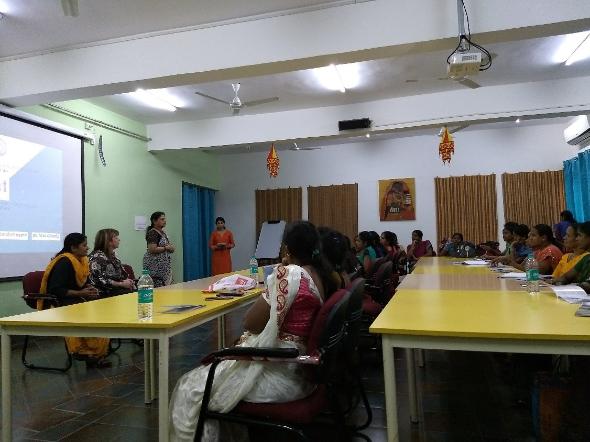
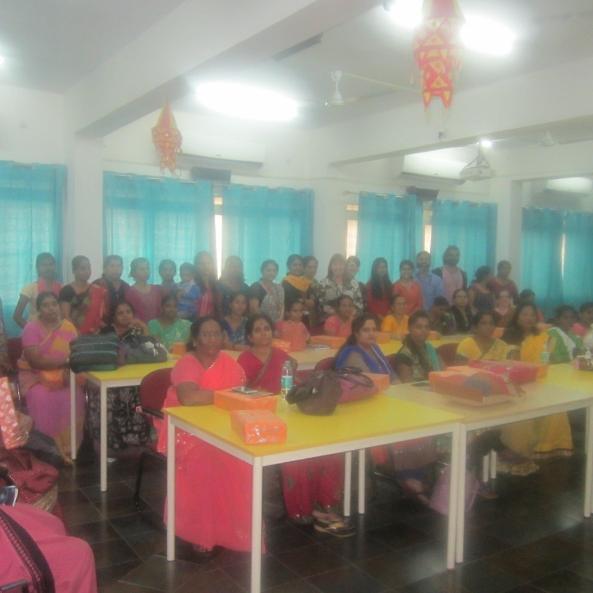
Nomination of the Liverpool-NIMHANS Steering Group for the 2017 Staff Award (Partnership of the year)
The Liverpool-NIMHANS Steering Group was nominated and short-listed for the 2017 Staff Award (Partnership of the year) and invited to the University’s Staff Awards dinner were winners were announced.
_Award-594x396.jpg)
October 2017: Liverpool-NIMHANS 5th Symposium and Longitudinal conference
Liverpool-NIMHANS 5th Symposium
The University of Liverpool and NIMHANS organised the 5th symposium held in Liverpool to show case the highlights of the collaboration done in conjunction between the two Institutions (which includes a dual PhD programme) in the field of Perinatal Mental Health and Infection and Global Health.
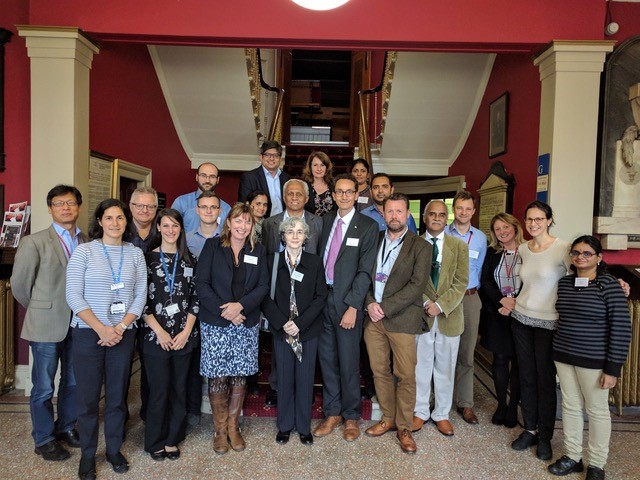
Longitudinal two-day capacity building conference entitled ‘Longitudinal Developmental Science from Birkenhead to Bangalore: sex differences and pathways from pregnancy to child and adolescent mental health problems’
The team organised and chaired a conference in October 2017 at the Foresight Centre, University of Liverpool. Over 60 academic and clinician delegates attended from the UK and other countries for a lively workshop with international speakers on longitudinal studies. A large delegation from India visited Liverpool led by the Director of NIMHANS, Professor B.N Gangadhar.
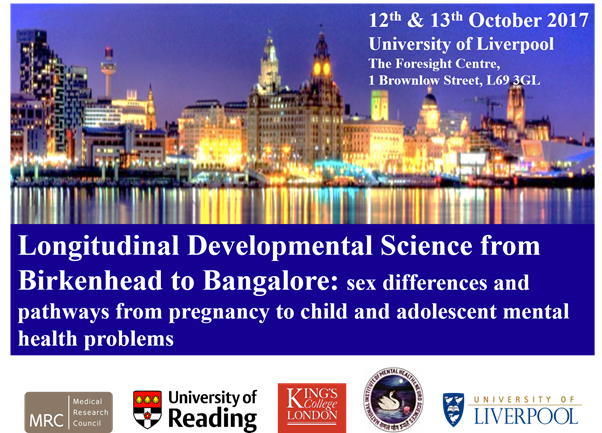
Introduction – How can Longitudinal Developmental Science inform our understanding of child mental health in Western and low and middle-income settings?
Prof Jonathan Hill, University of Reading
Why are there such large differences in boys’ and girls’ rates of emotional and behavioural disorders, and why does it matter?
Prof Barbara Maughan, King’s College London
The development of aggression: Why do girls and boys become so different?
Prof Dale Hay, Cardiff University
Insights into sex differences in pathways to child psychopathology from the Wirral Child Health and Development Study.
Prof Jonathan Hill, University of Reading.
Early life influences on the epigenome: evidence for sex-specific effects?
Dr Kieran O'Donnell, McGill University, Montreal, Canada
Epigenetic programming by early life stress: translational approaches from rodent to human and back.
Dr Chris Murgatroyd, Manchester Metropolitan University
Gender differences in young adulthood: the South London Child Development Study.
Dr Susan Pawlby, King's College London
The role of cortisol reactivity in the translation of CU traits to aggression: evidence for sex specific pathways.
Dr Nicky Wright, University of Liverpool
Why are associations between maternal cortisol in pregnancy and early infant behaviours so different in boys and girls?
Dr Elizabeth Braithwaite, University of Reading and University of Oxford
Gender differences in play and imagination.
Salim Hashmi, Cardiff University
Sex difference, mechanisms underlying psychopathology and implications for treatments and clinical services.
Round table discussion with audience questions
On critical periods and reverse causality. Recent results from the Generation R birth cohort.
Prof Henning Tiemeier, Erasmus Medical Centre Rotterdam, Netherlands
The persistent impact of being bullied during childhood and adolescence: Implications of policy and practice.
Prof Louise Arseneault, King's College London
Long-term sequelae of early deprivation: the young adult follow up of the English and Romanian Adoptees study.
Prof Barbara Maughan, King’s College London
Born in Bradford is growing up - 10 years of Epidemiology, engagement and intervention.
Dr Rosie Eachan, Bradford Teaching Hospitals NHS Foundation Trust
From Birkenhead to Bangalore - investigating shared and distinctive perinatal risks for child mental health.
Prof Helen Sharp, University of Liverpool
Cultural issues in assessing maternal mental health and mother infant interactions in the Bangalore Child Health and Development cohort study.
Dr Geetha Desai, National Institute of Mental Health and Neuroscience, India
Conceptualising cross cultural differences in early caregiving: comparative levels of instruction and mind-mindedness.
Laura Bozicevic, University of Liverpool
MRC Global Mental Health Strategy.
Dr Rachael Panizzo, Programme Manager for Mental Health and Addiction Medical Research Council UK
Future priorities and directions for mental health research.
Round table discussion with audience questions. Chair: Shoba Srinath (retired), NIMHANS, India
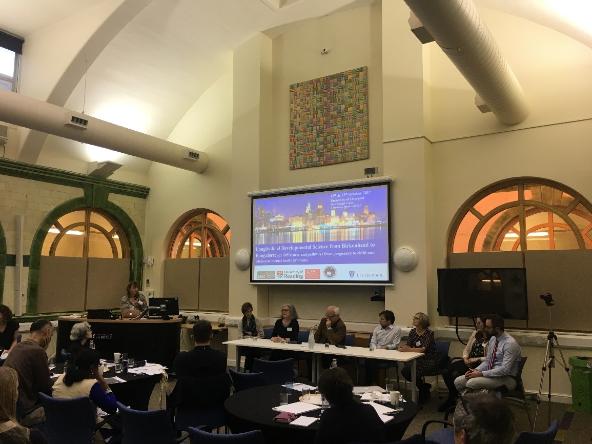
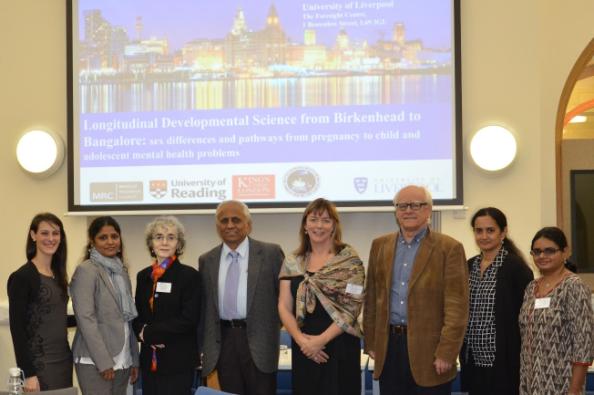
March 2017: Bayley scales workshop in Liverpool and seminar about Perinatal health and child in India (PRAMM and BCHAD studies)
Bayley scales workshop
A workshop was run on the use of the Bayley scales for the assessment of child cognitive, motor and language development within research studies. This was organised in our research centre at the Wirral Child Health and Development Study base and attended by a delegation from India.
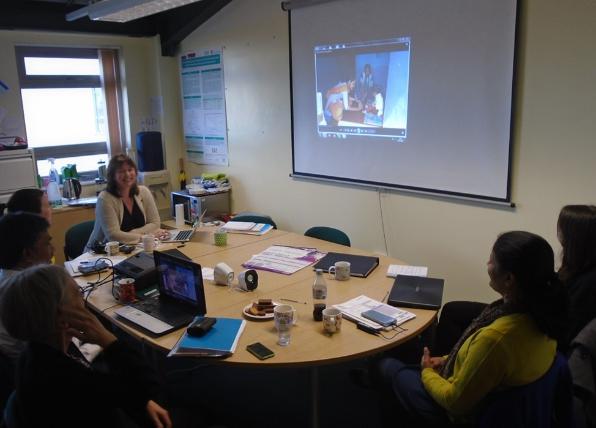
Seminar about Perinatal health and child in India (PRAMM and BCHAD studies)
The team ran an event for UK and Indian researchers to showcase the work that is ongoing and has been done in India.
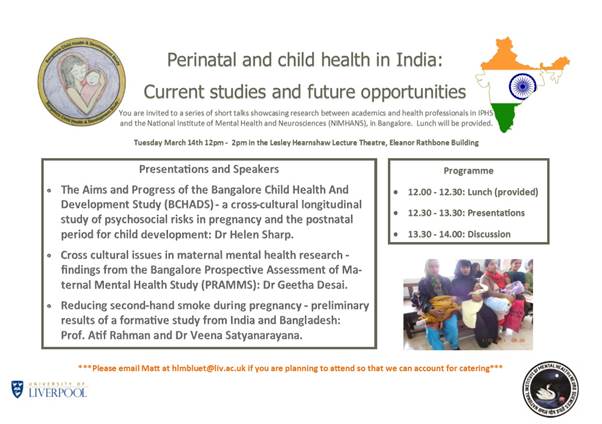
June 2016: First visit to India
The UK team of investigators visited the Indian team to assist in the set up of the research environment. The principles of longitudinal research were discussed at length and the practical challenges in ensuring participant engagement over time. We visited the NIMHANS centre for wellbeing, a community centre where mother and baby interactions will be filmed for the research.
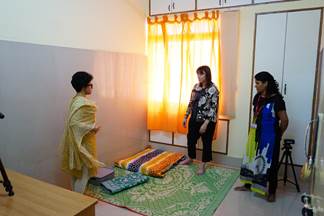
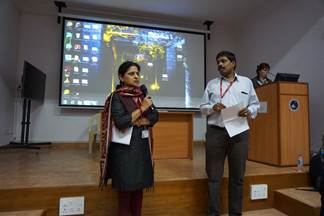
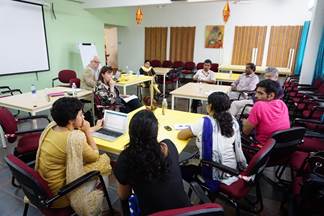
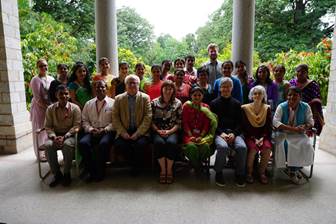
Back to: Institute of Population Health